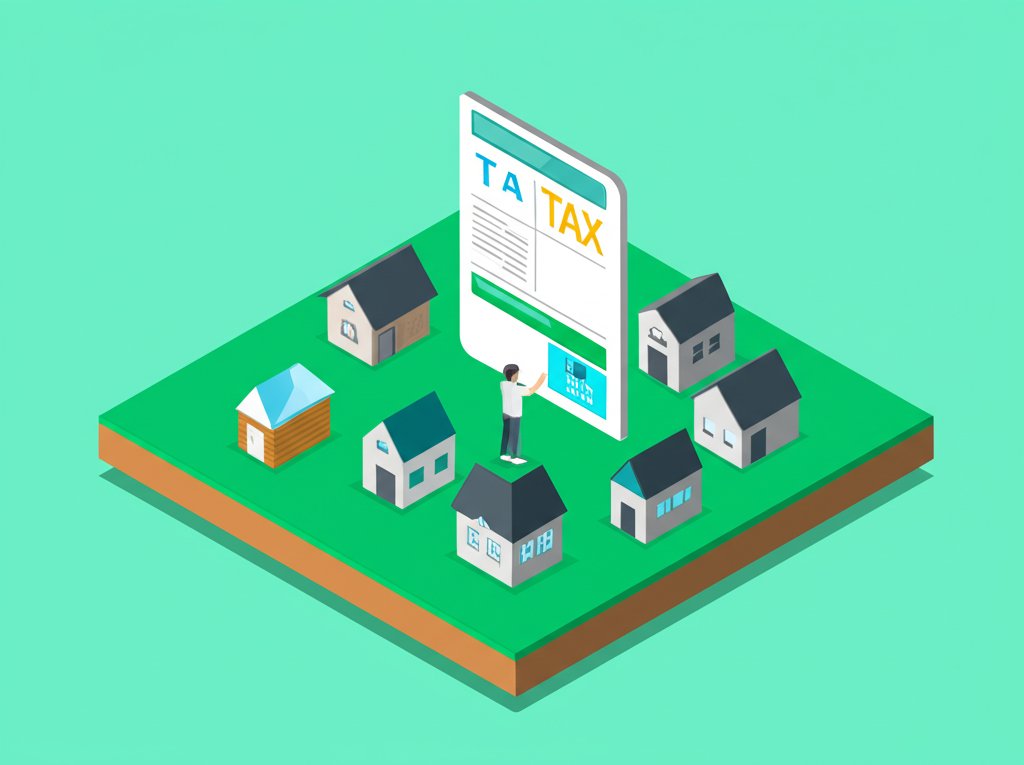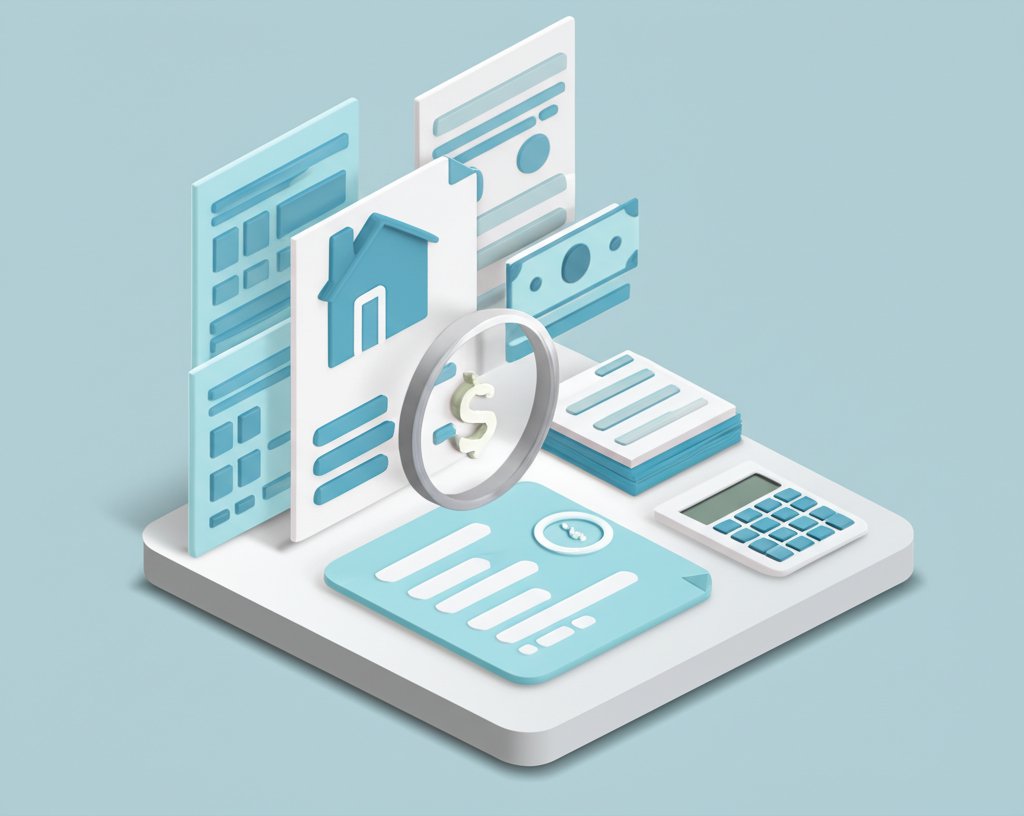Navigating property taxes can often feel complex, but understanding the system in Ashtabula County, Ohio, empowers you to manage your finances effectively. These essential taxes fund the local services that enrich our community, from schools and infrastructure to public safety and county administration. This comprehensive guide is designed to demystify Ashtabula County property tax, providing you with all the knowledge, resources, and actionable steps needed to confidently handle your obligations.
Whether you’re a long-time homeowner or new to the area, mastering your bill means understanding how your property is valued, who to contact for assistance, and the various ways to pay. By the end of this article, you’ll be equipped to take full control of your ashtabula property taxes.
Understanding how market values are determined is crucial for accurate property tax assessment, and resources like this guide on navigating the real estate landscape can offer further insights.
Understanding Ashtabula County Property Taxes: Calculation & Fundamentals

At its core, Ashtabula County property tax is a levy on real estate, calculated based on your property’s value and the combined tax rates of your specific taxing districts. It’s a system designed to be fair and transparent, funding the services you rely on daily.
The Foundation: Assessed Value & Market Value
In Ohio, property taxes are not calculated on the full market value of your home. Instead, they are based on a percentage of that value, known as the assessed value.
- Market Value: This is the current, estimated price your property would sell for on the open market. The Ashtabula County Auditor determines this value.
- Assessed Value: For residential and agricultural properties in Ohio, the assessed value is set at 35% of the property’s market value. This 35% figure is what your tax rate is actually applied to.
Example: If your home has a market value of $200,000, its assessed value would be $200,000 * 0.35 = $70,000. Your property taxes are then calculated based on this $70,000 assessed value, not the full $200,000.
To ensure these valuations remain current and equitable, the County Auditor conducts a full county-wide reappraisal every six years. In between these major reappraisals, a triennial update occurs every three years to reflect market fluctuations more frequently. This system aims to keep property assessments responsive to economic changes and fair among all property owners.
Decoding Your Tax Rate: Levies and Districts
Your actual property tax bill is a combination of various levies. These are voted on by residents in different taxing districts and directly fund specific services.
- Taxing Districts: Your property falls within several taxing districts, which might include:
- Your local school district
- Your municipality (city or village) or township
- County-wide services (e.g., library, health department, mental health services)
- Vocational school districts
- Millage Rate (Mills): Tax rates are expressed in “mills,” where one mill equals $1 of tax for every $1,000 of assessed value. Each approved levy adds to the overall millage rate applied to your property.
- Combined Tax Rate: The Auditor’s office compiles all the approved levies for your specific location to arrive at a combined tax rate. This rate, applied to your property’s assessed value, determines your gross tax.
- Effective Tax Rate: Due to state law, Ohio offers a “rollback” credit that reduces the amount homeowners actually pay. This results in an effective tax rate that is often lower than the nominal, or gross, millage rate. While the exact average property tax for Ashtabula County can fluctuate, it’s generally helpful to understand that Ohio’s tax system includes mechanisms to lessen the burden on homeowners. For precise figures, always refer to the official county Auditor’s website.
Key Players in Your Ashtabula County Property Tax Journey: Auditor & Treasurer
Understanding the distinct roles of key county offices is vital for navigating Ashtabula County property tax. While both are crucial, they handle different aspects of the process.
The Ashtabula County Auditor: Valuation and Records
The Ashtabula County Auditor’s office is your primary resource for property valuation and record-keeping. The current Auditor, David Thomas, leads the charge in ensuring that property assessments are fair and accurate.
Key Responsibilities of the Auditor:
- Property Assessment: The Auditor is responsible for determining the market value of all real estate in the county for tax purposes. This includes conducting the six-year reappraisals and three-year updates.
- Maintaining Property Records: The office serves as the central hub for property ownership records, legal descriptions, and transfer information. You can often find detailed information about any parcel on their website.
- Administering Exemptions: The Auditor’s office processes applications for property tax exemptions, such as the Homestead Exemption and Owner-Occupancy Credit, which can significantly reduce a homeowner’s tax burden.
- Providing Public Resources: The Auditor’s website offers a wealth of online tools, including GIS mapping, property search functions, and current tax rate information.
Important Distinction: The Auditor’s office does not set the tax rates. Tax rates are determined by various taxing districts (like school boards or city councils) through voter-approved levies. The Auditor simply applies these rates to your property’s assessed value.
Contact The Ashtabula County Auditor’s Office:
The Ashtabula County Treasurer: Collection and Management
Once the Auditor determines the assessed value and the tax rate is applied, the Ashtabula County Treasurer steps in. Led by Angie Maki-Cliff, the Treasurer’s office is primarily responsible for the collection and management of all ashtabula property taxes.
Key Responsibilities of the Treasurer:
- Tax Collection: The Treasurer collects all real estate taxes for Ashtabula County.
- Payment Options: They provide various convenient methods for taxpayers to make their payments.
- Delinquent Tax Management: For properties with unpaid taxes, the Treasurer’s office administers programs to help property owners remedy their delinquency, including payment plans.
- Tax Bill Generation: They issue the property tax bills and statements to property owners.
Contact The Ashtabula County Treasurer’s Office:
Navigating Your Assessment: Appeals, Exemptions, and Reappraisals
Your property assessment directly impacts your Ashtabula County property tax bill. Understanding your rights and available programs can help ensure you’re paying a fair amount.
Appealing Your Property Value to the Board of Revision
If you believe your property’s market value, as determined by the Ashtabula County Auditor, is incorrect, you have the right to appeal. This process is handled by the Ashtabula County Board of Revision (BOR).
When to Appeal:
The typical window for filing an appeal is from January 1st to March 31st of each year for taxes payable in the subsequent year. It’s crucial to adhere to these deadlines.
How to Appeal:
- Gather Evidence: Your appeal must be supported by evidence that demonstrates your property’s market value is lower than the Auditor’s assessment. This could include:
- Recent sales of comparable properties in your neighborhood (often called “comps”).
- A professional appraisal of your property.
- Photos of structural damage or unique issues affecting your property’s value.
- Income and expense statements for income-producing properties.
- File the DTE Form 1: Obtain and complete the “Complaint Against the Valuation of Real Property” form (DTE Form 1). This form is available on the Auditor’s website or at their office.
- Submit Your Complaint: File the completed form and all supporting documentation with the Ashtabula County Auditor’s office by the March 31st deadline.
- Attend a Hearing: The Board of Revision will schedule a hearing where you can present your case. You may represent yourself or have an attorney or agent represent you. The Auditor’s office often provides resources, including informational webinars, to help property owners understand and prepare for the appeal process.
Unlocking Savings: Homestead and Owner-Occupancy Exemptions
Ohio offers several property tax reduction programs for qualifying homeowners, which can significantly lower your ashtabula property taxes.
- Homestead Exemption: This program allows qualifying senior citizens, permanently and totally disabled homeowners, and surviving spouses to reduce the market value of their home by $25,000 for tax calculation purposes. This means you only pay taxes on the remaining value.
- Eligibility: Generally requires the homeowner to be 65 or older, or permanently and totally disabled, and to have owned and occupied the home as their primary residence.
- Owner-Occupancy Credit: This credit provides a 2.5% reduction on the amount of property tax due on an owner-occupied primary residence.
- Eligibility: You must own and occupy the property as your principal place of residence.
How to Apply: Application forms for both exemptions are typically available on the Ashtabula County Auditor’s website or at their office. Deadlines for application usually fall in December for the following tax year, but it’s always best to confirm current dates with the Auditor’s office.
Understanding Reappraisal and Triennial Update Cycles
The regular cycle of reappraisals and updates is a critical component of ensuring fair and accurate property taxation across Ashtabula County property tax.
- Reappraisal (Every Six Years): During a full reappraisal, the Auditor’s staff physically inspects or performs detailed reviews of all properties within the county. They analyze recent sales data, construction costs, and other market indicators to establish new market values. The last full reappraisal in Ashtabula County would have set values for a six-year period.
- Triennial Update (Every Three Years): In the years between full reappraisals, the Auditor conducts a statistical update based on market trends. This is generally a less intensive process, using sales data to adjust values for neighborhoods or property types rather than individual inspections.
These cycles are designed to prevent assessments from becoming severely outdated and ensure that your property’s value for tax purposes reasonably reflects its current market value. Information regarding the next scheduled reappraisal or update is always available on the Auditor’s website.
Securely Paying Your Ashtabula Property Taxes: Options & Deadlines
Once your property tax bill arrives from the Ashtabula County Treasurer, you have several convenient options for payment. Understanding these methods and critical deadlines is key to avoiding penalties.
Convenient Payment Methods
The Ashtabula County Treasurer strives to make paying your ashtabula property taxes as easy as possible.
- Online Payment:
- OfficialPayments.com: A third-party service often used by government entities. A convenience fee usually applies. You will need your parcel ID and desired payment amount.
- Doxo.com: Another third-party platform that accepts various payment methods. Be aware of any associated fees.
- County Payment Portals: The Treasurer’s official website often provides direct links to secure payment portals, sometimes with lower fees than general third-party services. Always check the official county site first.
- By Phone: Many counties offer a dedicated phone line for tax payments. For Ashtabula County, the number is typically 1-866-549-1010. Have your parcel ID and payment amount ready. Convenience fees usually apply for phone payments.
- By Mail: You can mail a check, money order, or cashier’s check payable to the Ashtabula County Treasurer.
- Mailing Address: Ashtabula County Treasurer, 25 W Jefferson St, Jefferson, OH 44047.
- Tip: Always include your parcel ID on your check or money order to ensure proper credit. Consider sending certified mail if close to a deadline.
- In Person: If you prefer to make your payment directly, visit the Treasurer’s Office during business hours.
- Location: 25 W Jefferson St, Jefferson, OH 44047.
- Office Hours: Monday-Friday, 8:00 am – 4:30 pm.
Key Payment Deadlines to Remember
Adhering to payment deadlines is crucial for avoiding penalties and interest on your Ashtabula County property tax. Ohio law typically structures property tax payments into two installments.
- First Half Payment: Generally due in February.
- Second Half Payment: Generally due in July.
Crucial Note: While these are the standard approximate months, exact dates can vary slightly year-to-year. It is imperative to check the official Ashtabula County Treasurer’s website or your mailed tax statement for the precise current year’s deadlines. Postmarks are often used for mailed payments, so factor in mailing time. Missing a deadline can result in statutory penalties and interest charges.
Solving Property Tax Challenges: Delinquency and Assistance Programs
Life can present unexpected financial challenges, and falling behind on your Ashtabula County property tax can be a daunting experience. Fortunately, the Ashtabula County Treasurer offers resources and programs to help homeowners manage delinquent taxes and prevent more serious consequences.
Understanding Delinquent Taxes and Consequences
When property taxes go unpaid past their due date, they become “delinquent.” Ohio law outlines a clear process for handling delinquent taxes, and ignoring the issue can lead to severe repercussions.
- Penalties and Interest: The most immediate consequence is the accrual of statutory penalties and interest on the unpaid amount. These charges can quickly increase your overall tax burden.
- Lien Against Property: Unpaid taxes become a lien against your property, meaning the county has a legal claim to it.
- Tax Foreclosure: If delinquent taxes accumulate over several years and no resolution is reached, the county may initiate tax foreclosure proceedings. This is the most serious consequence, as it can ultimately lead to your property being sold to satisfy the outstanding tax debt.
The most important takeaway: Do not ignore delinquent tax notices. The problem will not go away on its own and will only become more difficult and costly to resolve over time.
Path to Resolution: Payment Plans and Escrow Options
The Ashtabula County Treasurer understands that circumstances can make it difficult to pay property taxes on time. They offer programs designed to help homeowners get back on track.
- Payment Plans for Delinquent Taxes: If you have accumulated delinquent taxes on an owner-occupied home or actively farmed land, the Treasurer’s office may be able to set up a payment plan. These plans typically allow you to pay off your past-due taxes in installments, often alongside your current tax obligations.
- Eligibility: These plans are generally available for owner-occupied residential properties and actively farmed land. Specific terms and conditions will apply, and you will need to actively communicate with the Treasurer’s office.
- Escrow Plan for Current Taxes: To help homeowners budget for future tax bills and avoid delinquency, the Treasurer’s office may offer an escrow plan. This allows you to make smaller, more manageable monthly payments towards your upcoming current tax bill. When the bi-annual tax payment is due, the accumulated funds in your escrow account are then applied.
- Benefit: This proactive approach helps spread the cost of your ashtabula property taxes throughout the year, reducing the burden of large lump-sum payments.
Actionable Advice: If you are facing difficulties paying your Ashtabula County property tax, contact the Ashtabula County Treasurer’s office as soon as possible. Their staff is there to assist you and can discuss available options. Early communication is key to finding a solution and preventing more severe issues like foreclosure. They can probably help you find a solution tailored to your situation.
Essential Online Resources for Ashtabula County Property Taxpayers

In today’s digital age, a wealth of information regarding your Ashtabula County property tax is accessible right at your fingertips. Leveraging these online resources can save you time, provide critical data, and empower you to stay informed.
The Auditor’s Website: Your Data Hub
The Ashtabula County Auditor’s website (auditor.ashtabulacounty.us) is an invaluable tool for every property owner. It’s designed to be a comprehensive hub for property-specific information.
- Property Search: You can easily search for any property by address, parcel number, or owner name. This search will typically yield:
- Current and historical tax values (market and assessed).
- Detailed property characteristics (land size, building square footage, number of rooms, etc.).
- Ownership history and transfer deeds.
- Current tax rates applied to that specific parcel.
- Payment details for past and current taxes.
- Interactive GIS Map: The Geographic Information System (GIS) map allows you to visually explore property lines, aerial imagery, zoning information, and more. It’s a powerful tool for understanding your property’s context within the county.
- Exemption Information: Find detailed information and downloadable application forms for programs like the Homestead Exemption and Owner-Occupancy Credit.
- Tax Rate Information: Access current and historical tax rates for all taxing districts within Ashtabula County.
Tip: Bookmark the Auditor’s website! Its user-friendly design is frequently praised by homeowners for saving significant time and effort in gathering property information.
The Treasurer’s Website: Payment & Assistance
The Ashtabula County Treasurer’s website (www.ashtabulacounty.us/treasurer) is your go-to source for payment options and assistance programs related to your ashtabula property taxes.
- Online Payment Portals: Direct links to secure online payment systems.
- Payment Deadlines: Always check here for the most current and accurate payment due dates.
- Delinquent Tax Information: Learn about policies, procedures, and options for managing delinquent taxes.
- Payment Plan Details: Information on how to apply for payment plans for delinquent taxes or set up an escrow account for current taxes.
- Forms: Access various forms related to tax payments or changes.
Broader Ohio Tax Resources
For a broader understanding of property taxation in Ohio or to compare Ashtabula County property tax with other areas, these resources can be helpful:
- Ohio Auditor of State Website: (ohioauditor.gov) Provides statewide information on property valuation, tax law, and oversight functions.
- Tax-Rates.org: (tax-rates.org/ohio/ashtabula_county) While not an official county site, this can offer comparative data on tax rates across different Ohio counties. However, for specific property data and official information, always rely on the Ashtabula County Auditor and Treasurer websites.
Staying updated on property tax information and actively utilizing these official resources can significantly empower you as a homeowner in Ashtabula County.
Frequently Asked Questions About Ashtabula County Property Tax
What is the average Ashtabula County property tax?
The average Ashtabula County property tax can vary significantly based on property value, location (which taxing districts apply), and specific exemptions. While recent data suggests the median property tax paid by homeowners in Ashtabula County might be around $1,477 (with an effective tax rate of approximately 1.25% of a home’s median value), this is an average. Your individual tax bill will depend entirely on your specific property’s assessed value and the combination of levies in your particular taxing districts. For your precise tax liability, always refer to your official tax bill or the Ashtabula County Auditor’s website.
How often are properties reassessed in Ashtabula County?
Properties in Ashtabula County undergo a full county-wide reappraisal every six years to re-establish market values. In the third year between these reappraisals, a triennial update is conducted to statistically adjust values based on market trends and recent sales data. This ensures assessments remain relatively current.
Who do I contact if I disagree with my property valuation?
If you disagree with your property’s assessed value, you should contact the Ashtabula County Auditor’s office first. They can explain how the value was determined. If you still believe it’s incorrect, you can file an appeal with the Ashtabula County Board of Revision (BOR) between January 1st and March 31st.
Can I pay my Ashtabula property taxes online?
Yes, the Ashtabula County Treasurer offers several online payment options, typically through OfficialPayments.com, Doxo.com, and sometimes through direct payment portals linked from their official county website. Be aware that convenience fees may apply for online transactions.
What happens if I miss a payment deadline for my Ashtabula County property tax?
Missing a payment deadline will result in penalties and interest being applied to the unpaid amount. If taxes remain delinquent for an extended period, the county may initiate tax foreclosure proceedings, which could lead to your property being sold. It is crucial to contact the Ashtabula County Treasurer’s office immediately if you anticipate difficulty making a payment.
What is the role of the Ashtabula County Treasurer?
The Ashtabula County Treasurer is responsible for collecting all property taxes, managing delinquent tax accounts, offering various payment methods, and administering payment plans or escrow options. They are the primary contact for payment-related inquiries and assistance.
Conclusion: Master Your Ashtabula County Property Tax
Understanding and proactively managing your Ashtabula County property tax is a fundamental aspect of responsible homeownership. By comprehending how your property is valued, knowing the roles of the Ashtabula County Auditor and Treasurer, and utilizing the wealth of online resources, you gain the power to make informed decisions and address any challenges that may arise.
Remember, the official websites of the Ashtabula County Auditor and Treasurer are your most authoritative sources for accurate information, current deadlines, and available assistance programs. Don’t hesitate to reach out to their offices directly with any personalized questions or concerns. By staying informed and engaged, you can confidently master your Ashtabula property taxes and contribute to the vibrant future of our community.










